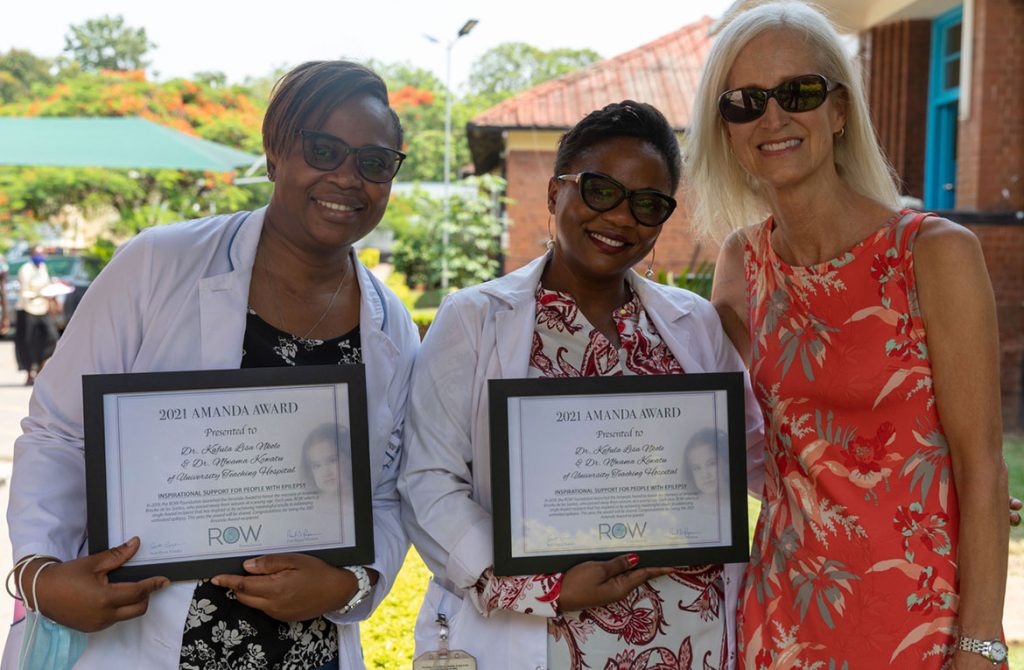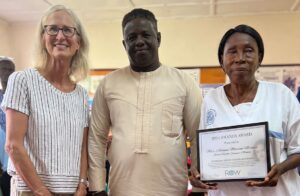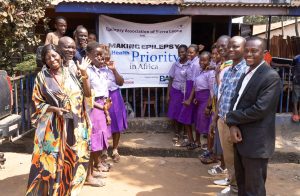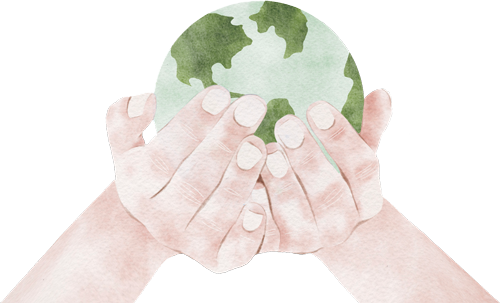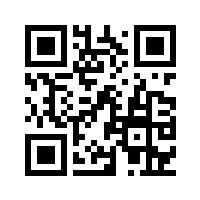In 2019, ROW launched the Amanda Award to honor the memory of Amanda Brooke de los Santos, who passed away from seizures at a young age.
Each year, ROW awards a grant to an individual or organization with a track record of achieving meaningful results in addressing the epilepsy treatment gap. The Award comes with a $2,500 cash grant that has been matched 1:1 each year by Amanda’s mother, Lisa. ROW is delighted to announce the 2021 Amanda Award will be shared by Dr. Kafula Lisa Nkole and Dr. Nfwama Kawatu, both child neurologists at University Teaching Hospital in Zambia.
While neurologists are in short supply in Africa, child neurologists are quite rare. To help address this, child neurologist Dr. Archana Patel has been mentoring Drs. Nkole and Kawatu, who now represent a one-of-a-kind team to support and care for children with epilepsy in Zambia. With Ken Koskela (ROW’s Director of Global Programs) and Dr. Patel present, Lisa personally presented the award. Dr. Patel summed up her thoughts well:
“I am beyond thrilled and proud to see the Amanda Award go to Drs. Nkole and Kawatu. Having known both since they were in pediatrics training, watching their passion for neurology grow, and seeing them become the first two Zambian Child Neurologists has been amazing. Both are brilliant physicians, but more important, are incredibly invested in improving the lives of children and their families affected by epilepsy. They work tirelessly to make things better despite many obstacles and a seeming impossible workload at times. I cannot think of anyone who embodies the spirit of this award better than them; they are truly inspiring to us all.”
Dr. Archana Patel
The cash grant will be used to further their efforts in supporting children with epilepsy.
Visit to Zambia and Uganda
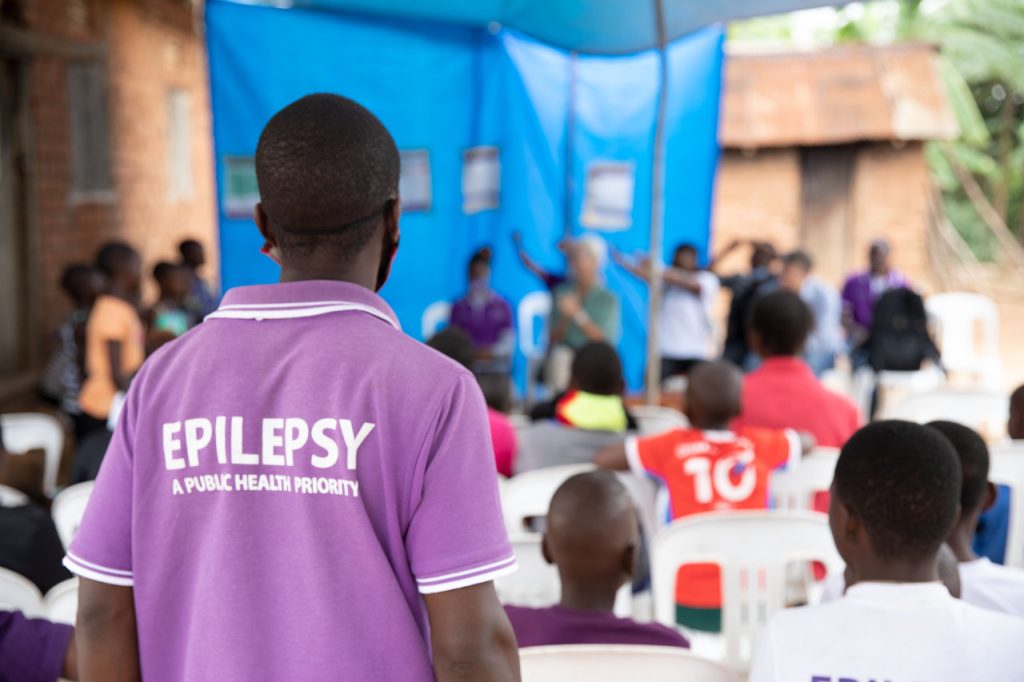
During the past two weeks, Ken Koskela and Lisa have been in Zambia and Uganda to see the results of our partnerships there. They met many children and adults whose seizures have become controlled thanks to the efforts of our partners. Equally inspiring were visits to communities that now understand epilepsy as a medical condition and are becoming more welcoming to those with epilepsy.
